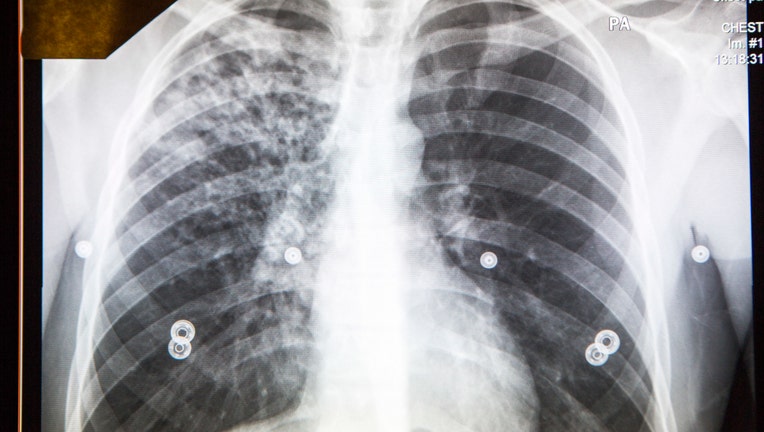Student diagnosed with active tuberculosis, Public Heath warns of possible exposure at CSUSB

An abnormal digital chest x-ray is shown on the screen in the NHS's Mobile X-ray Unit (MXU). The chest x-ray was taken as a public health screening for Tuberculosis (TB). The van is parked outside a hostel in central London and the visit is part of a (Getty Images)
SAN BERNARDINO, Calif. - A California State University, San Bernardino student was diagnosed with active tuberculosis (TB) and health officials are warning other students and employees who might have been exposed to the illness.
The San Bernardino County Department of Public Health (DPH) said that the student is receiving treatment and will return to school upon clearance from the DPH.
Health officials have identified about 400 students and employees who might have been exposed to TB between April through August. The students and employees that were identified will receive emails from DPH’s Communicable Disease Section with information about testing.
Those who do not receive a testing notification are considered not to be at risk for exposure and TB testing is not recommended.
“While the risk of infection is low, it’s important for those who have been identified to take the time to get tested,” said Erin Gustafson, M.D., Medical Director for CDS. “Treatment is available for those who test positive.”
TB is a disease spread through the air during prolonged, repeated and close contact with an individual who is infected with active TB. People may contract TB when breathing air exhaled by someone who is sick with the illness. When left untreated, TB can result in serious complications.
TB is not spread by shaking hands, sharing food or drinks or via bed linens or toilet seats. Not everyone infected with TB bacteria becomes sick. A person with inactive (latent) TB cannot spread it to others.
Although the risk of transmission is low, it is recommended that students who may have been exposed visit their primary care provider, the CSUSB Student Health Center or DPH to get tested. CSUSB employees who may have been exposed should visit their primary care providers or DPH to get tested.

